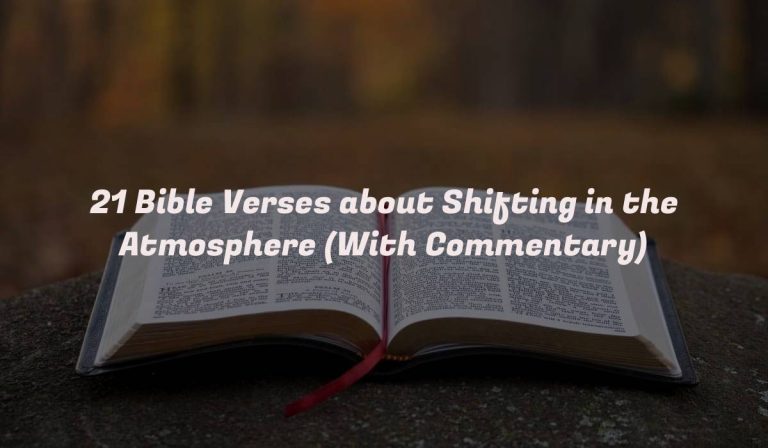25 Bible Verses About The Color White (With Commentary)

Colors often carry symbolic meanings, and white is no exception. In the Bible, the color white is associated with purity, righteousness, and divine revelation. Join us as we explore biblical passages that shed light on the significance of the color white, offering insights into its spiritual symbolism and the transformative power it holds within our lives.
Bible Verses About The Color White
Revelation 7:14
“They have washed their robes and made them white in the blood of the Lamb.”
The color white represents purity and righteousness. In this verse, it symbolizes the spiritual cleansing through the sacrifice of Jesus Christ. Through His shed blood, believers are made clean, their sins forgiven, and their robes made white. It is a reminder of God’s grace and the transformative power of His love.
Psalm 51:7
“Purge me with hyssop, and I shall be clean; wash me, and I shall be whiter than snow.”
David’s plea to God for forgiveness and cleansing reflects the desire to be purified completely. The comparison to snow emphasizes the purity and brightness associated with the color white. It signifies the deep longing for spiritual renewal and restoration in the presence of the Almighty.
Matthew 28:3
“His appearance was like lightning, and his clothing white as snow.”
When describing the angel at Jesus’ empty tomb, the dazzling white clothing represents heavenly radiance and holiness. It highlights the supernatural nature of the divine and signifies purity and transcendence beyond earthly limitations.
Ecclesiastes 9:8
“Let your garments be always white.”
This verse metaphorically encourages living a blameless and righteous life. Keeping one’s garments white implies walking in integrity, refraining from sin, and maintaining purity of heart and actions.
Isaiah 1:18
“Come now, let us reason together, says the Lord: though your sins are like scarlet, they shall be as white as snow.”
God invites His people to reconciliation and forgiveness, promising that even though their sins may be as scarlet, they will be washed away and made as white as snow. The color white here signifies the complete removal of guilt and the restoration of purity through God’s mercy and grace.
Job 9:30
“If I wash myself with snow and cleanse my hands with lye, yet you will plunge me into a pit, and my own clothes will abhor me.”
Job’s words convey the futility of trying to achieve righteousness and purity through one’s own efforts. The comparison of washing with snow implies that even the purest white cannot compare to the holiness of God. It serves as a humbling reminder of our need for His saving grace.
Song of Solomon 5:10
“My beloved is radiant and ruddy, distinguished among ten thousand.”
While not explicitly mentioning the color white, the radiant and distinguished characteristics of the beloved point to the purity and beauty often associated with the color. It represents the excellence, uniqueness, and attractiveness of the one being described.
Revelation 19:8
“And it was granted her to clothe herself with fine linen, bright and pure—for the fine linen is the righteous deeds of the saints.”
The fine linen represents the righteous deeds of believers. Its brightness and purity suggest the virtuous actions that stem from a transformed heart. The color white signifies the godly character and holy conduct that reflect the righteousness of Christ in the lives of His followers.
Zechariah 14:5
“And the Lord my God will come, and all the holy ones with him.”
In this verse, the holy ones refer to angels or heavenly beings accompanying the Lord. They are often depicted in white garments, symbolizing their holiness, purity, and their divine association. The color white represents the celestial nature of these beings.
John 20:12
“And she saw two angels in white, sitting where the body of Jesus had lain.”
After Jesus’ resurrection, Mary Magdalene encountered two angels at the empty tomb, who were dressed in white. The white garments signify their heavenly origin, their role as messengers of God’s truth, and the purity and holiness of the divine realm.
Mark 9:3
“And his clothes became radiant, intensely white, as no one on earth could bleach them.”
During the transfiguration of Jesus, His clothes transformed into a brilliant and dazzling white, surpassing any human ability to produce such brightness. This extraordinary event manifests His divine nature, emphasizing His glory, purity, and superiority.
Daniel 7:9
“As I looked, thrones were placed, and the Ancient of Days took his seat; his clothing was white as snow, and the hair of his head like pure wool.”
The description of God’s clothing in this verse portrays His majestic and pure presence. The color white symbolizes His holiness, righteousness, and sovereignty. It underscores His authority and the awe-inspiring nature of His divine throne.
2 Corinthians 5:17
“Therefore, if anyone is in Christ, he is a new creation.”
Through faith in Christ, believers experience a transformation that brings forth new life. The color white represents this spiritual rebirth, symbolizing the purity, innocence, and new beginnings found in a relationship with Jesus.
Matthew 17:2
“And he was transfigured before them, and his face shone like the sun, and his clothes became white as light.”
During the transfiguration, Jesus’ face radiated with divine light, and His garments turned dazzling white. The brilliance of white represents His divine glory, purity, and holiness, reflecting His true nature as the Son of God.
Psalm 68:14
“When the Almighty scatters kings, it snows on Zalmon.”
This poetic verse compares God’s acts of judgment and victory to a snowfall. The whiteness of snow signifies His purity and the cleansing nature of His judgments. It symbolizes the sovereignty and power of God in bringing about His purposes.
Revelation 3:4
“Yet you have still a few names in Sardis, people who have not soiled their garments, and they will walk with me in white, for they are worthy.”
In addressing the church in Sardis, this verse highlights the faithful few who have remained pure and undefiled in their walk with God. The promise of walking with Christ in white signifies their righteousness, worthiness, and the reward of eternal fellowship with Him.
Matthew 5:8
“Blessed are the pure in heart, for they shall see God.”
The purity of heart mentioned in this verse refers to those who are sincere, morally upright, and free from spiritual impurities. The promise of seeing God emphasizes the intimate relationship and fellowship with Him that comes from a heart cleansed and made pure by His grace.
Revelation 1:14
“The hairs of his head were white, like white wool, like snow.”
When describing the appearance of Jesus in His glorified state, John sees His hair as white as wool and snow. The whiteness symbolizes His wisdom, purity, and eternal nature. It reflects His authority and divinity as the Alpha and Omega.
Isaiah 61:10
“I will greatly rejoice in the Lord; my soul shall exult in my God, for he has clothed me with the garments of salvation; he has covered me with the robe of righteousness.”
This verse celebrates the joy and gratitude of those who have been saved by God. The garments of salvation and the robe of righteousness represent the spiritual covering that comes through faith in Christ. The color white symbolizes the purity, holiness, and acceptance granted by God to those who believe.
Psalm 23:4
“Even though I walk through the valley of the shadow of death, I will fear no evil, for you are with me; your rod and your staff, they comfort me.”
In this well-known psalm, the reference to the “shadow of death” speaks of the darkest and most challenging times in life. The color white represents the presence and guidance of God, bringing comfort, protection, and assurance even in the midst of adversity.
Isaiah 35:10
“And the ransomed of the Lord shall return and come to Zion with singing; everlasting joy shall be upon their heads; they shall obtain gladness and joy, and sorrow and sighing shall flee away.”
The promise of the ransomed returning to Zion with singing signifies the ultimate restoration and redemption of God’s people. The color white symbolizes the joy, gladness, and purity of heart experienced in the presence of the Lord. It represents the eradication of sorrow, suffering, and the fullness of eternal joy.
Revelation 6:11
“Then they were each given a white robe and told to rest a little longer, until the number of their fellow servants and their brothers should be complete.”
In this verse, the white robe represents the victory, righteousness, and reward given to the martyrs and faithful servants of God. It symbolizes their standing in Christ, their heavenly inheritance, and the anticipation of the completion of God’s redemptive plan.
Zechariah 3:4
“And the angel said to those who were standing before him, ‘Remove the filthy garments from him.’ And to him, he said, ‘Behold, I have taken your iniquity away from you, and I will clothe you with pure vestments.’”
This verse describes a scene where Joshua, the high priest, is being cleansed and restored by God. The removal of his filthy garments and the clothing with pure vestments signify the forgiveness of sins and the restoration of righteousness. The color white represents the purity, acceptance, and divine covering bestowed upon the repentant and forgiven.
Job 38:14
“It is changed like clay under the seal, and its features stand out like a garment.”
Although not explicitly referring to the color white, this verse speaks about the changing of the earth’s surface under various conditions. The reference to a garment implies that colors, including white, can stand out distinctly. It reminds us of the intricate details and design found in God’s creation, including the different hues and shades we perceive.
Revelation 20:11
“Then I saw a great white throne and him who was seated on it.”
In the vision of the final judgment, the appearance of a great white throne emphasizes the purity, righteousness, and holiness of God as the ultimate Judge. It signifies the authority and absolute justice with which He will evaluate every person’s life and deeds.





